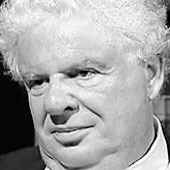State of Dis-Union: American Clanistan
Can the trend toward more factionalism, tribalism and fragmentation in American political life be reversed?
February 12, 2013

Afghanistan is not — and has never been — a unified nation. About the only thing the ever-warring, eternally suspicious rival clans that populate it tend to agree on is their mutual opposition to every foreign invader and would-be do-gooder.
This has certainly been the case from the times of the British Empire in the 19th century onward to the Soviet Union’s occupation in the 20th century to NATO and the United States after 2003. It is, in fact, a consistent pattern of behavior that has been documented for at least 2,300 years — back to the time of Alexander the Great.
Apologists for the nation-building and reform policies conducted by the United States in Afghanistan under both Presidents George W. Bush and Barack Obama have tried to explain away this most enduring fact of Afghan politics, history and society.
For all the smooth talking, one simple fact remains: You can’t have a strong central government when the nation in question is divided into fiercely warring, distinct tribal cultures that do not want one.
But Afghanistan’s story is yesterday’s news, the drawdown of U.S. troops imminent. Why raise this issue now?
Here is why: A truly unfortunate case of policy “influenza” has impacted the U.S. political landscape. It is increasingly fragmenting along ideological and cultural lines that Afghans would quickly recognize.
Many Americans had hoped that President Obama would prove capable of transcending the divide between the “blue states” and “red states” that he so eloquently lamented in his iconic speech at the 2004 Democratic Convention that put him on the political map. It was not to be. He tried, but the Republicans just did not let him.
Americans today are quicker than ever to stake out their sides of the cultural and political divide. They align themselves eagerly with either the Democratic clan or the Republican/Tea Party clan.
As if that fundamental divide were not enough, the Republican Party is struggling to accommodate its various factions, or “clans,” under one big tent. The Tea Party, social conservatives, pro-corporate “country club Republicans” and libertarians — they all jockey for influence and compete to put their stamp on the party’s agenda.
In the face of such widespread factionalism, what hope can there be for the future of the U.S. federal government? A look at the most vocal and increasingly powerful faction in the United States today — the movement of disaffected conservatives — provides some sobering insights about the future of the U.S. government and American society.
Given demographic trends, in particular the irreversible decline in the share of white Americans, tens of millions of people are deathly afraid that a remote central government will raise their taxes, take away their guns, loosen immigration laws, increase regulation and promote whatever is contrary to their traditional ways of living.
Under these circumstances, disaffected conservatives are inclined to de-federalize the United States. Even moves toward the secession of states have been launched, the case of Texas being only the most prominent among them. At a minimum, if these people had their way, they would weaken the powers of the federal government to levels not seen since before the Civil War.
A highly fragmented technological and media environment actually makes vast programs of decentralization more possible and attractive in government and society, as well as in units of economic organization.
Tea Party activists see the reforms of President Obama as radical and threatening to their traditional way of life. Afghans feel the same way about the foreigners’ drive for nation-building and the social and economic reform programs that they see as being imposed on them.
Today, the U.S. federal government’s impositions of taxation and regulation are perceived as becoming more burdensome, while unemployment levels remain stubbornly high. Increasingly, the future of such venerable federal programs as Social Security and Medicare looks more uncertain. That makes the attraction of smaller units of government far stronger.
This vision usually had little practical attraction as long as the national government continued to provide prosperity, stability and security.
In line with rising prosperity, the history of the United States since the Civil War has been a rising trend of growing federal power. But that trend appears close to — or even at — its apogee. Leaving aside the period of the country’s founding, it has never been as contentious as it is now.
President Obama still has to prove that he can pay for his new federal healthcare program, that he can reverse unemployment trends, and that he can take bold steps to reduce the country’s debt in the medium to long term.
If he can achieve these goals, he will revitalize the bonds of the U.S. federal union for future generations. But if he fails, Republicans could hijack the recovery process by precipitating the further fragmentation of U.S. society. That would create an American Clanistan far sooner than anyone now thinks possible.
Independent of that, serious moves toward segregation are underway — only that it is (thankfully) no longer African-Americans being segregated.
Rather, it is the conservative part of white America (a huge part of that 59% of white Americans who voted for Mitt Romney in the 2012 presidential election) who are segregating themselves from the Democrats and the rest of America.
Takeaways
A truly unfortunate case of policy "influenza" has impacted the United States of America.
It is increasingly fragmenting along ideological and cultural lines that Afghans would quickly recognize.
Tea Party activists see the reforms of President Obama as radical and threatening to their traditional way of life. Afghans feel the same way about the foreigners' nation-building.
You can't have a strong, central government when the nation in question is divided into fiercely warring distinct tribal cultures who do not want one.
Republicans could hijack the recovery process by precipitating the further fragmentation of U.S. society.
Read previous
Big-Time Exporters
February 11, 2013
